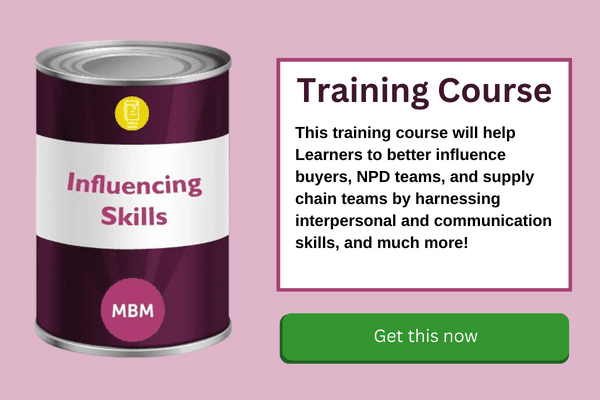Projecting Your Inner Strength
Personal presence is an intangible human quality that opens doors and makes you stand out. And it helps you connect with people, and be remembered. We can all get nervous talking to a group, and not give the impression we want. But if you work on your presence, you’ll be recognised as authentic, open and trustworthy.
This article looks at how to increase your personal presence. As you’d expect, yes, we mention presentation skills. There are even some pointers about command presence from firefighters. But presence doesn’t mean being dynamic or heroic. Instead, it’s about showing your genuine character and being natural. It’s easy to get hung up on this, especially if you’re introvert. But everyone can develop their personal presence, regardless of temperament. Read on!

Be Here, Now, and Stay There
What Does Having a Presence Mean?
The Collins English Dictionary says, if someone has presence, their appearance and manner impress people. Collins’ list of synonyms of presence, as in personality, includes bearing, aura, poise, demeanour, self-assurance and comportment.
These terms suggest personal presence is connected with dignity. Look online, though, and the Collins Dictionary says “Hendrix’s stage presence appealed to thousands of teenage rebels.” Presence is rock ‘n’ roll, too! Jimi’s presence was linked to his exceptional talent. We may not be gifted. But we can still develop our presence.

What Actually is Personal Presence?
Personal presence is about being present and engaged in the moment. It involves bringing your highest energy and self into the situation and being truly authentic. You can achieve presence by the way you choose to listen to another person. Or pay attention in a meeting.

Sticky Learning ® is 7 times more effective than 1-day training courses. Plus, you will get a Chain of Evidence proving your Return on Investment. Discover soft skills training that changes behaviours long term.

Why is Personal Presence Important?
In business we want to attract people, create a rapport and be remembered favourably. That means projecting confidence. It’s a British trait to be reserved and over modest. So it doesn’t come naturally to many Brits to have the personal presence other Europeans and Americans have. But it’s a soft skill we can all develop.
How Can I Improve My Personal Presence?
As we’ve said, we’re not necessarily talking about being ‘heroic’ or particularly dynamic. You need to be proactive, working on the things you can control, in your sphere of influence. Here are five key character aspects to focus on:
Vision: Think about where you want your life to go, and how to get there. What are your goals? What are you passionate about, that gives you a sense of purpose?
Purpose: Develop this sense of purpose. Knowing the direction you want to go will help you find the drive and passion to achieve it. There’s neuro scientific evidence that purpose is good for your body, too. It’s not just in the mind.
Values: Think about the things in life that are important to you, and be true to those principles. It’s easier to make good business decisions when you’re clear where you stand.
Giving away value: Sharing expertise and giving advice or knowledge away to colleagues will raise your profile. It’ll also mean they feel connected with you and refer you to others. And empathising is good for producing endorphins and improving your immunity.
Authenticity: Yes, that word again. Authenticity, or the lack of it, can make or break a business relationship. And it affects the impression you give.
Surely, Presence is Something to do With Presentation Skills
Yes, presentation skills are part of it and you can develop them and grow in confidence. Let’s look at this side of it for a moment.
What Gives a Person Presence?
“Presence” is known as many things: gravitas, commanding attention, holding court or owning the room. Basically, when you speak, others listen.
What are Presence and Impact?
Communicating presence and making an impact are key soft skills that help in business, for sure. They give you confidence to express your personality and gain the trust and respect of colleagues. You can go on training courses to pick up practical techniques, to overcome inhibitions in everyday situations. But it’s what’s inside that really counts, in the long run.
How Do You Build Executive Presence?
Some people say executive presence is a must-have quality for young professionals wanting to do well. They say it will determine your success in work and life. As this list of desirable traits shows, it’s about more than speaking clearly:
9 Qualities of People With Presence
1. Preparation
Know the purpose of your presentations, meetings and emails. And understand your audience. Think about their needs, before opening your mouth or clicking send. Don’t just read your slides out to yourself before talking through your deck. Practise delivering them.
2. Positivity
We all have past failures and negative thoughts that will drag us back if we let them. But we’re here, now. You’re okay in this moment, aren’t you? And the future’s not happened yet. Think instead of how you can inspire others to do their best for you and the business.
3. Confidence
People with presence write and speak with conviction about what’s possible. If you believe in what you’re doing, project that belief.
4. Vulnerability
Balance confidence and self-assurance with humility. It’s appealing, it touches people. Be honest with yourself about your past failures and what triggers your anxiety. Life isn’t about what happens to you, it’s how you react to it.
5. Empathy
Work on seeing things from the other person’s point of view. As the pandemic has taught us, that includes asking how people are and actively listening to the reply. Not just moving on to the business in hand.

6. Adaptability
If the meeting goes off script, go with it! You’ll get back on track eventually, and you’ll have made a deeper connection. When you refocus, check in with the other people about what they want from the conversation.
7. Sociability
Work is a social experience. Hence, small talk is a big deal. Wouldn’t you rather do business with people you like?
8. Humanity
People remember how you make them feel, more than anything. If you can share an experience that touches them, do it.
9. Authenticity
If you’re a natural comic, be funny. If your strength is detail, make the data tell the story. And if it’s strategy, fire your audience’s enthusiasm for your plan. Whatever you do, be comfortable in yourself.
Self-Direction and Productivity
Another sign of presence is self-direction. This is the ability and tendency to act without being told what to do. It’s a soft skill that is important in leadership. Self-direction is also associated with research, creativity and decision making – and productivity.
9 More Traits of People With Executive Presence
Here are 9 more traits that characterise the best executive presence. They divide into personal, communication and relationship qualities.
Personal – About You:
- Passion: The energy for what you do and the desire to do it.
- Poise: The sense that you are comfortable in yourself and your surroundings.
- Self-confidence: An air of optimism and assurance that convinces others you have the strength, resources and determination for the task ahead.
Communication – About Your Message:
- Openness: Showing a genuine interest in hearing and objectively considering what others have to say. Being open encourages information sharing. And the more information that’s shared, the better the decisions will be.
- Clarity: Creating your message and telling it in a clear, compelling way. This is something we can all work on. First step, summarise the objective of your message in a single sentence or two. Then the details will fall into place.
- Candour: Being frank and sincere in your communication, and partial and non-biased to others.

Relational – About Your Relationships:
- Thoughtfulness: Showing consideration when dealing with others conveys an interest in them and the relationship.
- Sincerity: The genuine conviction of believing in and meaning what you say.
- Warmth: The appearance of being accessible to others, physically and emotionally.
The Importance of Presence at Work
Teams working under individuals with strong executive presence have greater productivity because they trust and respect their leader. This increases efficiency in teamwork, because people engage with their leaders in a way that avoids distractions and conflicts.
A large proportion of how employees perceive their working environment is down to their leader’s influence. Goleman, McKee and Boyatzis’ book ‘Primal Leadership’ proposed that a leader’s usual style creates about 70% of their business’s emotional climate.
This in turn drives around 20%, or even 30%, of a business’s profitability. Companies devote huge resources to increasing profitability just 1%. So the implications are awesome if leaders contribute far more than that through their presence!
How Do You Establish a Presence?
Be assertive when it counts: Being assertive doesn’t come naturally to everyone. Some people think assertiveness is a trait to be frowned upon. They see it as pushy, or aggressive. But there are occasions when assertive language will be necessary, to stand your ground. Do the right thing – because your contribution matters.
Become the expert in your field: Presence is about much more than the way you speak to people. Respect for your ability also contributes to your professional presence and how you put your stamp on your role. Look for new ways to add value.

Build real connections: The way you relate and connect with people speaks volumes about your character. Again, not everyone is an extrovert, and you don’t have to be everyone’s best mate. But if you support your team, they’ll think more highly of you. And connecting with people outside your organisation will open up new opportunities for you and the business.
Be one step ahead: Think proactively about the issues that come up at work and you’ll be more than a problem-solver, you’ll be a presenter. And your confidence will contribute to your presence.
What is a Strong Presence?
A strong presence translates to strong self-worth. The more consistently you practise presence, the more you’ll notice your increased confidence and self-worth. Investing in yourself is important because otherwise, you won’t progress.
What Gives Someone a Strong Presence?
Their speech is focused, articulate and steady. Powerful people never rush. Their body language is purposeful, not distracting. Even in the face of conflict, disturbance or situations they find distasteful, they hold steady.
What is a Good Command Presence?
We said at the start we’d hear from some firefighters. People in business often talk about firefighting. Here’s a definition of command presence from the National Wildfire Coordinating Group in the USA. For them, a good command presence is characterised by:
- Open communication
- Mutual trust and respect
- Freedom to raise issues and engage in debate
4 tips for achieving a commanding presence as a leader or manager are:
- Identify your own strengths.
- Speak from your personal experience.
- It’s not about how interesting you are, it’s how interested you are in others.
- Speak, but also listen – be interactive.
Once You Start Working on Your Personal Presence, Keep Going!

10 Tips to Maintain Your Personal Presence:
- Grab opportunities: Take every chance at work to do your best and stand out. If you perform well, you should get noticed.
- Be proactive: Take the initiative, without having to be told.
- Speak up: Make sure you get credit when it’s due. And raise your voice when you feel something’s wrong.
- Be opinionated: Even if others don’t like it, if you put your thoughts well, they will respect you as an impactful presence.
- Dress right for you: If you’re comfortable in your clothes, you’ll feel better, and more confident. And you’ll perform better.
- Think before you speak: A person with presence knows what to say and when to say it. And they know not to say absolutely everything that comes to mind.
- Have confidence: Believe in yourself and your abilities. But stay grounded and be your authentic self. Know your strengths and weaknesses.
- Be consistent: Work to be the person you want them to remember.
- Be in the moment: It can be hard, but focus on the present. Try to keep your emotions in check. Mood swings are not professional!
- Be inspiring: Be optimistic, inspiring others with your positive attitude. Be trustworthy, approachable, and honourable. Give respect, to get respect.
Having Presence Will Also Make You More Resilient
Presence contributes to resilience and wellbeing. It gives you grit and determination to get on with the job, faced with adversity or uncertainty. Here’s how:
- Making calculated decisions.
- Staying focused in times of change.
- Staying positive.
- Standing up to toxic behaviours.
- Staying calm in a crisis.
- Keeping a positive outlook.
- Teaming up with others.
- Learning from past experiences.
- Handling disappointment skilfully.
- Setting healthy boundaries
- Being proactive in resolving problems
- Thriving as an outsider: not shying away from being different
And Finally: A Voyage of Self-Discovery
After reading this, are you looking for a good book about presence? Top in the searches is “Creating Personal Presence: Look, Talk, Think and Act Like a Leader” by Dianna Booher.
Or, you may prefer to start a process of self-discovery, and build your presence that way. This means asking yourself searching questions and examining your thoughts, words and actions to reach your own conclusions. Popular forms of self-discovery include client-centred therapy, mindfulness and the different kinds of meditation.
Developing your ability to focus attention on here and now will enhance your personal presence. Along with working on what’s inside you. But ultimately, only you can decide the way to get there. Go well.




